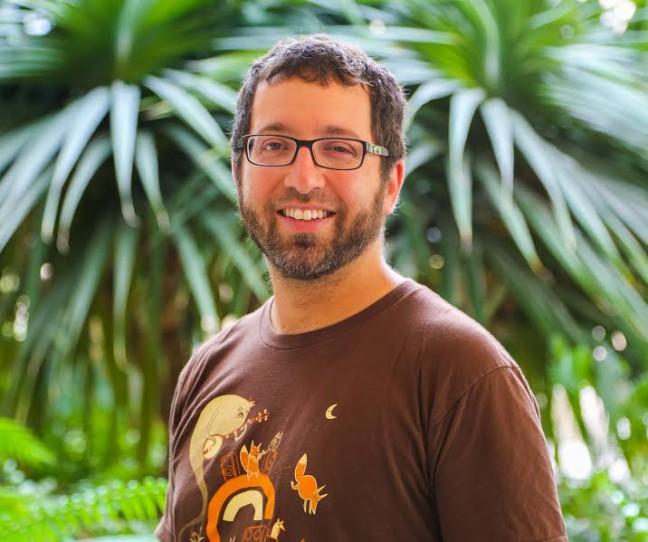Young math students are commonly known for their “When will I ever actually use this in real life?” groans, but for Jordan Ellenberg, a math professor at University of Wisconsin, answering that question merited writing a book.
The title of his book, How Not to be Wrong: The Power of Mathematical Thinking, might be a bit of an oversell, Ellenberg said, but the message, he noted, is not.
“It is meant to show the way mathematics can be a part of what you do everyday,” he said. “It doesn’t have to stop when you close your math book on the last day of the last math course you ever take.”
The highly-acclaimed author started teaching math at UW a decade ago. He grew up in Maryland, attended college at Harvard, got a master’s degree in fiction writing from Johns Hopkins, went back to Harvard and completed his PhD in math and then went on to finish his postdoc at Princeton. Eventually, Ellenberg said he chose UW after enduring the lengthy process of applying for professor jobs at universities nationwide.
Since early on he was always really interested in math, which he said is not always true for all mathematicians. He even took time after college to explore different paths, but he said even when he was studying creative writing, he missed math the entire time.
To him, math is not easily defined – just as most interesting things do not have clear-cut boundaries, he said.
Ellenberg’s favorite section of the book is one he wrote about Massachusetts Institute of Technology students who orchestrated a complex lottery scam that won them large sums of money, he said. However, the students involved were reluctant to speak with him, so he essentially had to trace their steps because there had not been much coverage of the story before his research.
The last section of the book delves into a more philosophical outlook on math, he said. One of the bigger themes he addresses is the assumption of absolute certainty in mathematics. Ellenberg said math is actually a great tool for dealing with the exact opposite.
“One of the great strengths of math in the modern world is it’s really good at dealing with uncertainty,” he said. “It’s letting us be uncertain in a way that’s kind of rigorous and goes beyond just being like ‘I don’t know.’”
Ellenberg’s answer to the age-old “When will I use this?” question is discussed thoroughly in the book, but generally, he said although many see it as an annoying question, it should not be treated as one.
He said while there are certainly people who will directly use mathematics in their career, a richer answer is to view problems like “sin2x = 2sinxcosx” as stepping stones to knowing that things like the motion of a planet or comet around the sun can be calculated, but something like the motion of a falling snowflake cannot.
“It’s knowing the difference between the predictability and unpredictability in life,” he said. “It’s those concepts we want people to come away with.”

















